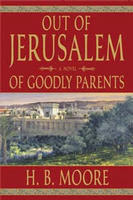By Heather Moore
Do you want to have an emergency fund of six months of living expenses, an active retirement fund, college funds for each child, no debt except for mortgage payment, teach your children money management and continue to save money each month? I’ve compiled ten tips that will send you on your way.
1. Set goals. This may seem like an obvious statement. But if you do something as simple as write a few goals on a Post-it note and stick it inside your checkbook, you’ll be surprised at how much the reminder will keep you on track. Ten years ago, I wrote three things on a Post-it. It’s still in my planner: Pay off Debt, Save 15%, Modest Mortgage. In your next family home evening or family council, explain your financial goals to your children and help them set their own. If you pay them allowance or pocket change for good grades, teach them to set aside 10% for tithing, and at least 10-20% for savings.
2. Budget. Let me offer a different spin on this dreaded word. Just take the following step: List all of your fixed monthly expenses, i.e., car payment, tithing, rent, utilities, etc. Then list all of your variable expenses, food, clothing, etc. Be sure to make allowances for expenses that only occur a couple times a year, like school shoes. Total everything up and you’re done. Just knowing the amount of money it takes to run your household will keep you conscious of your spending habits.
3. Large expenses—consult with spouse. It’s imperative to keep open communication with your spouse about what to spend money on. Do the kids need a new bunk bed? Or can you make do with a hand-me-down? When purchasing furniture or decorative items, make sure you aren’t going into debt. If they are going onto a credit card, you should be able to pay that off in full once the bill arrives. Save your true credit needs for things that are unavoidable, like a dishwasher on the fritz.
4. Credit Cards. A catch-22 if you ask me. You can establish good credit by maintaining a credit card and paying the balance in full each month. You can also damage your credit by having too many cards that raise your liability. I’d recommend two credit cards max. One is ideal. There are many programs out there that give you cash back or frequent flyer miles that you can take advantage of. One method I’ve used is to enter credit card charges into my check book. Then when I go to pay off the credit card each month, I’ve already deducted from my ledger and I’m not in for any unpleasant surprises.
5. Out of season shopping. This can save you a lot of money if you are able to plan in advance. I’ve shopped accredited on-line stores for clearance items. Often I can find a pair of pants or a sweater on sale in the Spring, knowing that it will fit my child the following Fall/Winter. Back-to-school shopping can always be a stickler on the budget. Consider shopping in October or later when the sale discounts are deeper. Holiday items going on deep clearance the day following the holiday. It’s a good time to purchase for the next year. If you explain to your children how planning in advance or waiting for sales will save money, pretty soon they’ll be keeping an eagle eye out for discounts.
6. On-line banking. This makes sense if you have high-speed internet access. It’s simple to transfer money, track expenses, and balance your checkbook on a daily basis if desired.
7. Double-checking. I’d recommend comparing your checkbook to your bank statements, then entering your debits and credits into a financial software program (Quicken, etc.). Let the software do the computing for you and your mistakes will be minimal.
8. Become educated on Tax Deductible Expenses. In most states, if your health care costs are 7% or more of your income, they become tax-deductible. Keep track of insurance premiums, medication expenses, and mileage to and from the doctor and pharmacy. Also, keep track of items you donate to goodwill and contributions to charity (tithing, school fund raisers, etc.).
9. Health care bills. Read every health care bill you receive. Don’t pay anything until you call your insurance company and verify that it is indeed what you owe. I once had a $400 bill for an anesthesiologist. I called my insurance and they agreed to cover it in full. A five minute phone call saved me $400.00 that month.
10. Investing. If your employer has a 401k program, try to contribute the maximum amount each year ($15,500 for 2007). This will reduce the amount of taxes that you have to pay. Also become educated on the traditional and Roth IRA funds. If you’re investing for your children, or even yourself, you can purchase no-load mutual funds. There’s no fee to buy these funds and no penalty to withdraw. Typically you’ll have to invest $1,000-5,000 for a minor’s account and then commit to an automatic deposit of $50 or $100 a month. Stay away from trendy funds when you are investing long-term. Check out
Morningstar ratings before choosing a no-load fund. Choose funds with a track record of at least five years, and rated at four or five stars. Each year at Christmas time we talk to our children about their college funds. We show how the money has grown over the past year, and how small contributions each month make a big difference over time.
By following these steps and taking good care of your finances, you’ll be on your way to achieving independence and security for your future. Wise investing and saving for the future will become a regular part of your life. You’ll start to think twice about impulsive spending. Over time, your goals will be met and you’ll be free from the stress and worry that comes from living above your means.
Heather Moore is the author of the
Out of Jerusalem series and manages an editing company,
Precision Editing Group.















